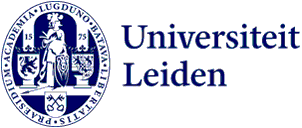
Leiden technology research receives funding from NWO and businesses
A CT scanner to treat eye cancer, energy-efficient software for the future and a test to identify male chick eggs. Three projects by researchers from Leiden University are to receive funding from research funder NWO’s Open Technology programme, to which the business sector also contributes.
Seven projects have been awarded funding. Together they share 5 million euros provided by NWO. The business sector and other organisations contribute an additional 700,000 euros.
Read below which Leiden researchers and projects have been awarded funding:
+CAPTOR: Cone-beam CT for Accurate Proton Therapy planning of Ocular Cancer - Dr J.W.M. Beenakker, LUMC
Co-applicants: Dr T. Vu, Professor C. Rasch, Dr T. Goncalves-Ferreira, Dr S. Habraken, LUMC
Proton therapy is an important type of treatment for eye cancer. However, the precision of this treatment is currently limited because three-dimensional imaging is not possible in the treatment position. Researchers from radiology, ophthalmology, and radiotherapy work together in this project, together with a number of businesses, to develop a cone-beam CT scanner for the eyes. This new type of scanner will allow surgeons to image the eye in its treatment position, so that the proton treatment can be planned more precisely. Ultimately, this will improve the vision of patients with eye cancer.
+SuperCode: SUstainability PER AI-driven CO-Design - Professor R.V. van Nieuwpoort, Leiden Institute of Advanced Computer Science (LIACS)
Co-applicant: P. Broekema, ASTRON
At the present time, data-intensive scientific applications generally need enormous amounts of computing power to deliver leading-edge science. The climate crisis has made it clear that unlimited use of resources (such as energy) for scientific discoveries is no longer acceptable. Future computer hardware promises to be much more energy efficient, but without more optimised software, we are unable to realise its full potential. In this project, we are developing a generic AI-driven co-design methodology using specialised large language models (such as ChatGPT), to generate effective and efficient code for computer hardware under development. We will validate our methodology using two radio astronomy applications, with sustainability as the key performance indicator.
+Tools For a More Ethical and Sustainable Egg Industry - Professor M.K. Richardson, Institute of Biology Leiden (IBL)
Co-applicants: Professor M. Groenen, Wageningen University & Research and Dr M. Giera, LUMC
The poultry egg industry has a major problem. As male birds do not lay eggs, they are destroyed in their millions within 24 hours of hatching. This practice raises ethical concerns and has been banned in certain EU countries. We intend to develop an ethically responsible alternative, comprising a new test to identify male chick at an early stage of the incubation period, before the embryo has developed a nervous system. Incubation of the male eggs can then be halted in a pain-free way. Dutch company In Ovo will implement this new technology in its automated egg screener and launch this onto the world market.
From research to impact
The Open Technology programme provides funding for application-oriented technical-scientific research that is free and unrestricted and is not hindered by disciplinary boundaries. The programme offers companies and other organisations an accessible way to participate in scientific research that is intended to lead to societal and/or scientific impact.
